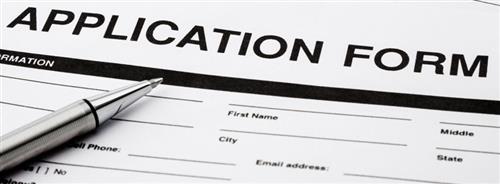- Your U-46 Path
- Cooperating Teachers
Student Teaching
Page Navigation
Cooperating Teachers
-
Cooperating Teacher Application
A cooperating teacher application is required of all certified staff who will serve as Cooperating Teachers to a Student Teacher
Cooperating Teacher Application

Roles and Responsibilities and Expectations of the Cooperating Teacher
-

School District U-46 cooperating teachers are high-quality educators with usually at least four years of teaching experience. They are fully certified in the areas they teach and are committed to the Illinois Professional Teaching Standards. Through their work, they demonstrate an understanding of teaching, embracing equity and cultural competence, and mentoring new teachers.
Cooperating teachers provide guidance about planning and preparations, instruction, classroom environment, and professional responsibilities in keeping with the expectations of the National Board of Professional Teaching Standards cooperating teachers demonstrate the following core propositions:
- Be committed to students and their learning.
- Know the subjects they teach and how to teach those subjects to students.
- Be responsible for managing and monitoring student learning.
- Think systemically about their practice and learn from experience.
- Be members of learning communities.
Generally, cooperating teachers have the following responsibilities and expectations:
- Prepare the students to accept the student teachers as the cooperating teacher's colleague (prepare a workspace prior to their arrival);
- Familiarize the student teacher with the classroom, facilities, the staff, and the policies of the school through activities that include, but are not limited to, a tour of the building, print and technology resources, instruction materials, parent handbook, student tardy, and attendance policies, emergency regulations and procedures, grading procedures, and school calendar;
- Present to student teachers an outline of the long-range goals and the organization of the classroom.
- Demonstrate effective teaching/learning practices; assist the student teacher in analyzing and understanding why these are effective;
- Facilitate independence and self-confidence by taking an inconspicuous position in the room while the student teacher is in charge. The student teacher should be allowed to handle independently all but the most awkward or dangerous situations. Most questions raised by students should be directed to the student teacher while he or she is in charge.
- Share supplemental information and correct flagrant errors ina supportive and tactful manner.
- Communicate daily with the student teacher, providing feedback on strengths and weaknesses.
- Include the student teacher in non-teaching functions such as parent-teacher conferences, in-service activities, staff meetings.
- Confer with the university/college supervisor and/or principal regarding progress and problems. Any serious problems should be brought to the attention of the university/college supervisor immediately.
- Complete formal evaluations using the university/college's forms.
- Communicate frequently with the university/college supervisor to support and evaluate the student teacher immediately.
Staff Directory
- ESC
| Showing results for "Professor named Smith at Elementary School" |

- Kimberly Scanlan

